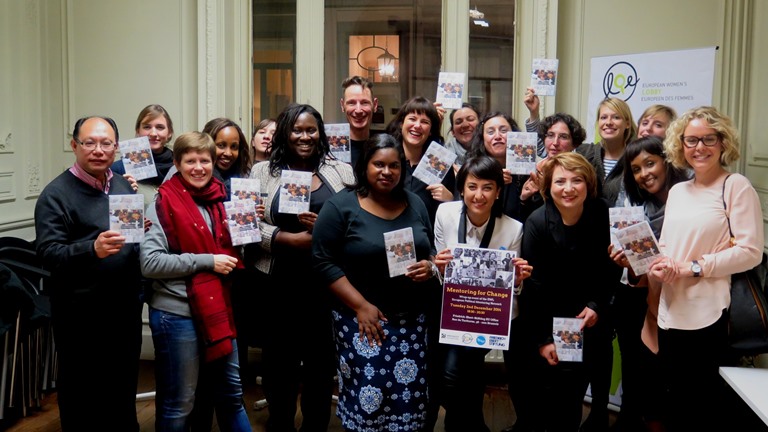Parliament’s president Jerzy Buzek is spearheading calls for electoral quotas to improve women’s participation in politics. Martin Banks reports.
It started on 9 March 1911 in just a handful of European countries and observed by a few thousand people. But, last week, the 100th anniversary of International Women’s Day was commemorated by millions and with events all round the world, including a high-profile conference in parliament around the theme “women in politics”. In an opening address, the institution’s president Jerzy Buzek said that while much progress had been achieved in gender equality over the past century “much more still needs to be done”. Buzek himself said he had set an example as president, with 54 per cent of his cabinet being women, including his chief of staff. But he warned that society was still “plagued by lack of equality and justice” for women. Calling for electoral quotas at national and European level, the Polish MEP said he hoped that by the time of the next European elections in three years “at least” 50 per cent of MEPs will be female. His demand for quotas was endorsed by another keynote speaker, former Irish president Mary Robinson, who said there can be “significant change in relatively short periods. “I have witnessed the transformative impact of women’s empowerment in two countries, Rwanda and Liberia, and I welcome the fact that, today, a growing number of women hold positions of political authority around the world,” she said. She added, “But for countless millions of women and girls, there is little that we can celebrate. The situations they find themselves in are truly intolerable.” When it comes to women’s political empowerment in EU countries, Robinson said there has been “steady progress” over the decades in equal treatment legislation, with landmark cases of the European Court of Justice and national courts, and initiatives by parliament itself. And yet, she pointed out, women’s participation at the political level in Europe is still faltering. “Clearly, the traditional barriers remain strong enough to deter or defeat women candidates.” Reasons for this, she suggested, include a lack of adequate financial resources, disproportionate family obligations, lack of confidence in a predominantly male culture, and a preference of many women to serve in civil society organisations where the culture is more friendly and gender sensitive. Robinson asked, “Are we in Europe prepared to really tackle these and other barriers over a 10-year transformative period? Are countries prepared to introduce national quotas for local and parliamentary elections for a decade to correct the existing imbalance? Are the EU and national governments prepared to provide financial resources to train and resource women candidates at local, national and EU level?” Ex-MEP and French government minister Nicole Fontaine, one of only two female presidents in parliament’s history, said that while there had been “significant” progress, she asked, “Why was it that, when I was elected president in 1999, it had been 20 years since the last woman president?” Fontaine, 23 years an MEP, urged parliament to be the “vigilant custodian” of gender equality issues, but warned, “parliament cannot act alone and that is why national governments must mobilise efforts to ensure we have greater female participation in politics.” However, Nikki Sinclaire, an independent MEP, who was among those in the main chamber for the event, said she “strongly disagreed” with Buzek and Robinson on the need for quotas. “I believe all forms of discrimination to be wrong, as even positive discrimination creates victims. Women need barriers to their progress to be removed, and issues such as the need for improved childcare facilities, particularly in certain member states, need to be addressed. “The ideal person for the role of MEP is the one who is best qualified for the job, regardless of gender. That is real equality.” According to Brigitte Triems, president of the European Women’s Lobby (EWL), “the slow progress on equality represents a democratic deficit and undermines an EU that promotes human rights and democracy as its central values.” She said the EU “can and must take concrete action to change this,” pointing out that in 2009 the EWL launched a campaign demanding binding measures for parity of democracy in all EU institutions. The “50/50” campaign attracted the backing of thousands of prominent supporters from the European and national levels but she said the EWL “is still waiting for these signatories to deliver on their commitment”. “It is obvious that years of declarations and minor actions have not achieved the necessary change. To challenge the current structures of decision-making, we need to adopt decisive and multi-dimensional measures. These must include targets and minimum standards for the representation of women, changes in political party structures and selection systems, but also socioeconomic support and measures for reconciling work and private life.” Download the article in PDF format or the full issue of the Parliament Magazine.

